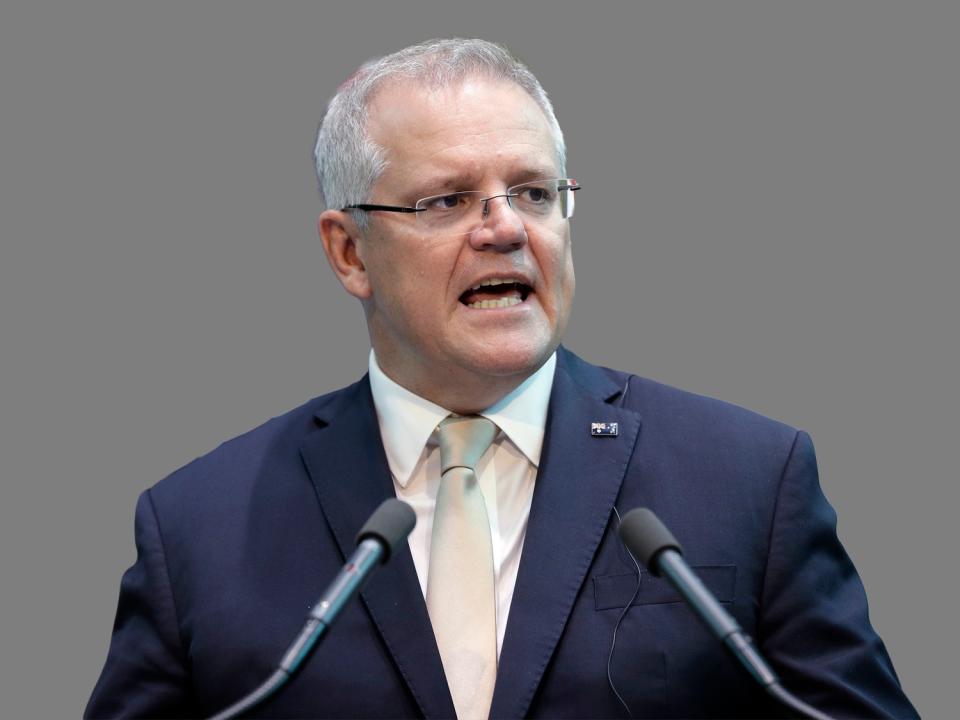The four things that need to be happen for Australia to recover

The Government’s JobSeeker and JobKeeper regimes have been helpful in taking Australia through the economic fallout of Covid-19, but investment in childcare, social housing and the environment is needed to truly “bounce back better”, a new report has found.
The coronavirus pandemic has highlighted social and health inequities in Australia, the Australian National University’s Centre for Health Governance said on Thursday, but the pandemic also presents an opportunity to make a more equitable and sustainable country.
The report’s authors Sharon Friel, Sharni Goldman, Belinda Townsend and Ashley Schram said JobKeeper and JobSeeker were positive measures but warned that reverting to former settings will “keep people in poverty”.
It also said that the government’s housing subsidies will not hit the mark.
“None of the housing-related measures that were introduced address the medium and long term housing precariousness that is prevalent in Australia. Unless this is fixed, social and health inequities will continue to widen,” the authors said.
They said the Government’s HomeBuilder Program, which offers eligible owner occupiers $25,000 grants to build or substantially renovate, mainly benefits those who “can already afford major renovations”. The scheme was panned when it was first introduced by the Labor party and social housing advocates.

The ANU researchers said the Government and state governments need to do more to address the shortage of affordable private rental households by reorienting the HomeBuilder program.
“Investment in social housing could help address the gap in housing, job creation and income growth, and reduce homelessness.”
Echoing calls from the Grattan Institute, The Australia Institute and several thought leaders, the ANU researchers also said support for childcare should continue.
“The Federal Government paid childcare services a weekly subsidy to continue to deliver early childhood education and care, and families were able to access childcare for free during this period. This was incredibly positive, and particularly helpful for low income households,” they said.
“From July to end of September 2020 the Federal Government will provide childcare services with half of the previous subsidy. Families will resume paying childcare fee gaps. This is unfortunate. Stopping the subsidy will disadvantage already disadvantaged households and children.”
The researchers said low income families “at least” should be able to access free childcare.
Policies fail to challenge the status quo

While the overall attempts to offset the Covid-19 impact are “impressive and to be commended”, and show that major changes can occur when there is a political will, the authors said that ultimately they do little to help Australia “bounce back better”.
“None of the policies challenge the status quo, and in fact maintain business as usual. The inequities in power, money and resources that sit behind the conditions of everyday life will not change as a result of these policy responses. There is no attention to structural change in policies related to the social inequities that drive health inequities,” the authors said.
“There is silence when it comes to issues of taxation, especially of multinational corporations; financial regulation; trade and investment, and racism – each of which drive the conditions in which we live, and which are so unequally distributed.”
The researchers called out Australia’s aged care system, noting the myriad flaws within the private sector. Around two thirds of the deaths in aged care homes have been in those operated for profit. At 68 per cent of all Australian deaths, that makes it one of the highest rates in the world, while 2,799 healthcare workers have contracted the disease - the majority working in aged and disability care.
In Australia, only one-in-10 aged care beds are publicly-run.

“Providing additional money to keep staff employed is good but as the terrible situation with aged care so sadly illustrates, we need long term investment in publicly funded and run front-line services. The privatised model and its inadequate regulatory framework is harmful.”
And the researchers slammed the “deafening” silence on climate change policy, warning that without a new approach, climate change will continue to exacerbate health inequities.
“Fundamentally, we need climate change mitigation. Such action must focus on... the institutions, policies, processes, actors, and ideas that embed, facilitate, and normalise the dominance of a system addicted to growth and profits irrespective of the environmental, social, and health costs.”
Microsoft co-founder and pandemic preparedness advocate Bill Gates recently issued a similar warning, stating that climate change will trigger the same economic damage as if the globe had suffered one pandemic every decade if something doesn’t change.
Want to take control of your finances and your future? Join the Women’s Money Movement on LinkedIn and follow Yahoo Finance Australia on Facebook, Twitter and Instagram.

 Yahoo Finance
Yahoo Finance 
